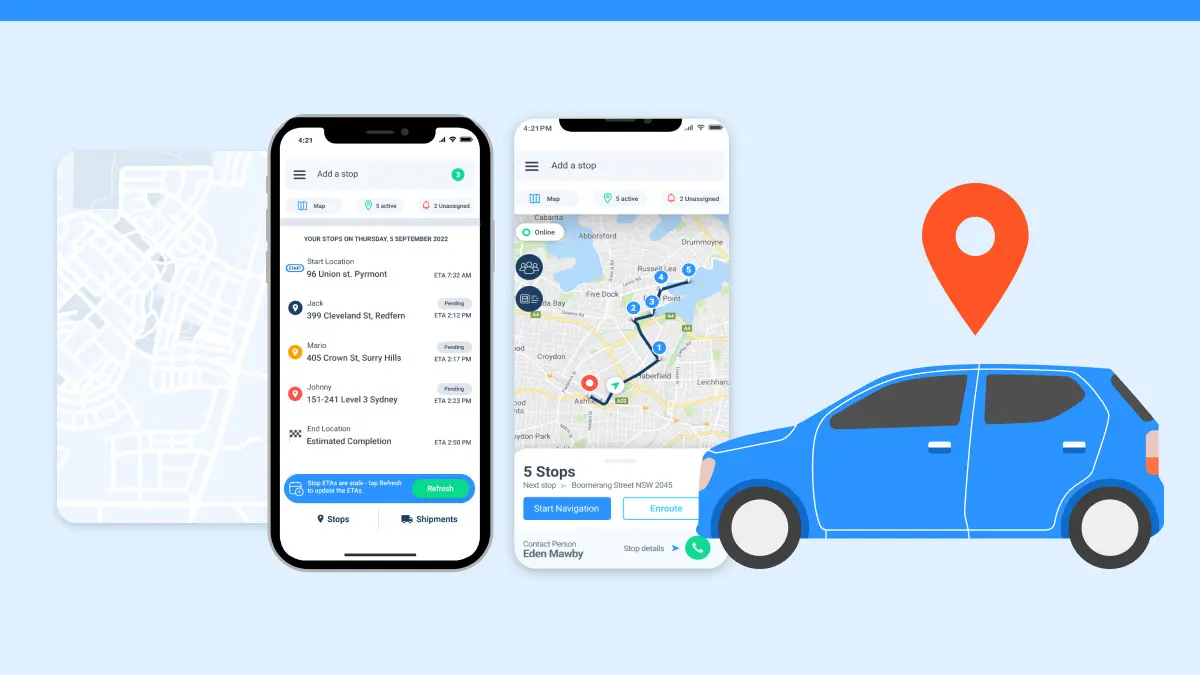Comprehensive Guide to GPS Tracking: Enhance Protection and Performance
Browsing the Future of GPS Monitoring: Technologies, Challenges, and Opportunities Ahead
As we stand at the crossroads of societal effects and technical developments, the landscape of General practitioner tracking is positioned for a transformative journey in advance. With terrific development comes fantastic duty, as information personal privacy worries impend huge and safety and security challenges in GPS tracking raise important concerns about securing sensitive details.
Evolution of GPS Modern Technology
The Evolution of GPS Modern technology has been noted by considerable improvements in accuracy, insurance coverage, and efficiency for many years. Originally developed for military purposes, general practitioner technology has actually evolved to come to be an ubiquitous tool in different sectors, including transportation, logistics, farming, and individual navigation. Early GPS systems were defined by minimal insurance coverage, lower accuracy, and bulkier hardware requirements. Nevertheless, with ongoing technical advancements, GPS has transitioned to much more precise and effective systems that offer international coverage and improved accuracy.
One secret turning point in the advancement of GPS technology was the growth of Selective Schedule (SA) in the 1990s, which intentionally degraded the accuracy of noncombatant General practitioner signals. As GPS technology continues to develop, we can expect further renovations in protection, accuracy, and efficiency, opening up brand-new possibilities for innovation and applications across different markets.
Real-Time Tracking Advancements
Structure on the developments in GPS innovation that have changed accuracy and insurance coverage, real-time monitoring has actually emerged as a critical area of development with profound effects throughout different fields. Real-time monitoring improvements allow businesses and organizations to keep track of employees, possessions, and lorries immediately, offering beneficial understandings for decision-making procedures - gps tracking. By leveraging real-time data, firms can boost operational performance, enhance customer care, and make certain the safety and safety of their possessions
One of the essential improvements in real-time tracking is the combination of artificial intelligence and artificial intelligence algorithms, which allow anticipating analytics and anomaly discovery. These abilities enable aggressive upkeep organizing, course optimization, and risk reduction methods. The development of real-time monitoring systems has actually led to the development of mobile applications and customizable dashboards, empowering users to accessibility important details anytime, anywhere.
Data Privacy Problems
Information privacy issues encompass numerous aspects, consisting of the storage, sharing, and retention of location information. Services should carry out durable security steps to secure GPS tracking data from cyber threats and data breaches. Transparent policies pertaining to information collection methods and the purpose of tracking are important to build depend on with consumers and make sure compliance with information defense policies.

Safety And Security Difficulties in GPS Tracking
Dealing with information personal privacy worries in GPS tracking is elaborately linked to reducing the security tests that occur from potential susceptabilities in the modern technology. One of the key security obstacles in GPS monitoring is the danger of unauthorized access to delicate place information.

One more protection difficulty is the possibility for jamming or spoofing general practitioner signals. By conflicting or broadcasting incorrect signals with legitimate ones, harmful actors can trick GPS receivers and manipulate place data. This postures risks not just for private customers however also for governmental and military applications that rely upon exact placing information. Applying durable security, verification measures, and signal confirmation methods are critical action in attending to these protection challenges in GPS tracking.
Arising Opportunities in the Market
The burgeoning field of General practitioner tracking technology presents a myriad of promising possibilities for sector growth and technology. One crucial chance Website exists in the growth of GPS tracking applications beyond standard fields. GPS monitoring can change person treatment by enabling remote monitoring of important indications and guaranteeing prompt medical support.
Another significant chance in the GPS tracking sector is the integration of sophisticated analytics and expert system. By leveraging these modern technologies, companies can acquire useful understandings from GPS information to improve operational performance, enhance decision-making procedures, and deal customized solutions to customers. Furthermore, the raising demand for linked tools and IoT solutions provides a ripe possibility for general practitioner monitoring business to broaden their offerings and create innovative solutions that cater to a more linked world. By exploiting on these arising possibilities, general practitioner tracking business can place themselves for continual growth and success in the vibrant landscape of the market.
Final Thought
In conclusion, the future of GPS tracking is noted by constant advancement and advancement in technology. Real-time monitoring improvements and arising possibilities present appealing prospects for the market. Nonetheless, information personal privacy concerns and safety and security challenges stay significant hurdles that need to be resolved. As the sector moves ahead, navigating these challenges will certainly be crucial to guarantee the ongoing development and success of GPS tracking modern technology.
With wonderful technology comes terrific duty, as data privacy worries impend large and security challenges in GPS tracking raising essential inquiries concerning securing delicate info.With the fast spreading of General practitioner tracking innovation in various markets, dealing with information personal privacy concerns has become a vital crucial for both businesses and consumers alike. The collection of place information through GPS monitoring raises considerable personal privacy problems, as it allows the monitoring of people' habits and activities. Companies using GPS monitoring have to focus on safeguarding this data to prevent unapproved accessibility or misuse that could compromise people' privacy civil liberties.
Companies need to carry out durable safety measures to protect GPS monitoring information next from cyber threats and information breaches.